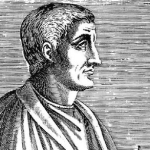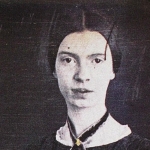Farewell thou thing, time past so known, so dear
Nay, thou more near than kindred, friend, man, wife,
Male to the female, soul to body; life
To quick action, or the warm soft side
Of the resigning, yet resisting bride.
The kiss of virgins, first fruits of the bed,
Soft speech, smooth touch, the lips, the maidenhead :
These and a thousand sweets could never be
So near or dear as thou wast once to me.
O thou, the drink of gods and angels! wine
That scatter'st spirit and lust, whose purest shine
More radiant than the summer's sunbeam shows;
Each way illustrious, brave, and like to those
Comets we see by night, whose shagg'd portents
Foretell the coming of some dire events,
Or some full flame which with a pride aspires,
Throwing about his wild and active fires;
'Tis thou, above nectar, O divinest soul !
Eternal in thyself, that can'st control
That which subverts whole nature, grief and care,
Vexation of the mind, and damn'd despair.
'Tis thou alone who, with thy mystic fan,
Workst more than wisdom, art, or nature can
To rouse the sacred madness and awake
The frost-bound blood and spirits, and to make
Them frantic with thy raptures flashing through
The soul like lightning, and as active too.
'Tis not Apollo can, or those thrice three
Castalian sisters, sing, if wanting thee.
Horace, Anacreon, both had lost their fame,
Hads't thou not fill'd them with thy fire and flame.
Phoebean splendour! and thou, Thespian spring!
Of which sweet swans must drink before they sing
Their true pac'd numbers and their holy lays,
Which makes them worthy cedar and the bays.
But why, why longer do I gaze upon
Thee with the eye of admiration?
Since I must leave thee, and enforc'd must say
To all thy witching beauties, Go away.
But if thy whimpering looks do ask me why,
Then know that nature bids thee go, not I.
'Tis her erroneous self has made a brain
Uncapable of such a sovereign
As is thy powerful self. Prithee not smile,
Or smile more inly, lest thy looks beguile
My vows denounc'd in zeal, which thus much show thee
That I have sworn but by thy looks to know thee.
Let others drink thee freely, and desire
Thee and their lips espous'd, while I admire
And love thee, but not taste thee. Let my muse
Fail of thy former helps, and only use
Her inadultrate strength: what's done by me
Hereafter shall smell of the lamp, not thee.


















Comment form: